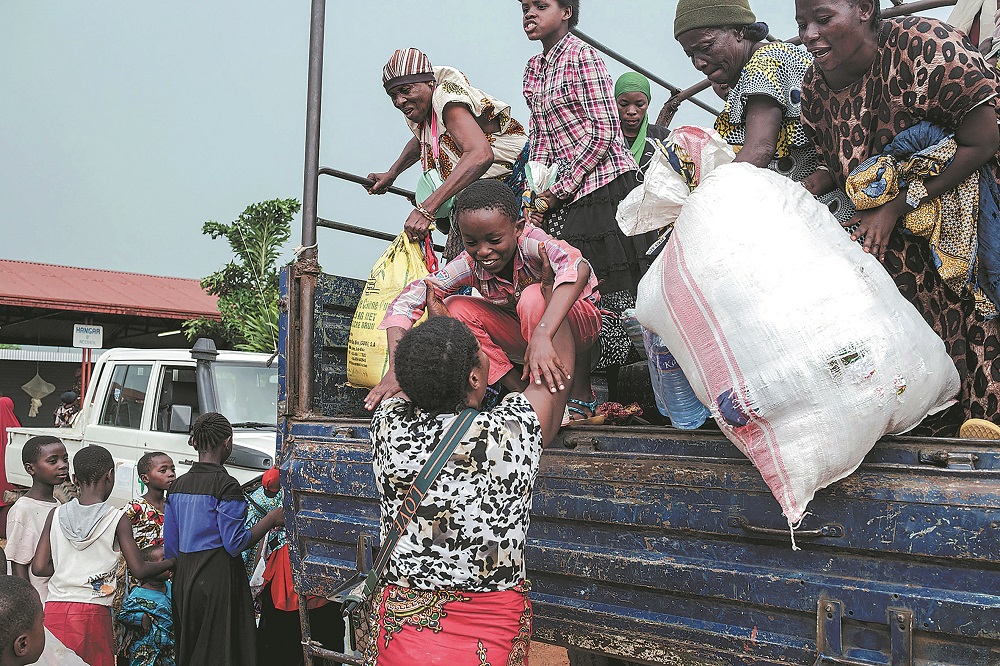Fear grips Congolese as conflict rages
By EDITH MUTETHYA in Nairobi, Kenya | China Daily | Updated: 2025-04-15 09:28

As he sat down in his rented house in an estate in Kenya's capital Nairobi, Claude Misingi was deeply lost in thoughts, pondering on the welfare of his mother and siblings back in the eastern part of the Democratic Republic of Congo, the epicenter of the ongoing conflict that has bedeviled the mineral-rich country for decades.
"It's frustrating when sometimes my calls go unanswered and even when I see any call from my mother or my siblings, I'm so shaken and nervous hoping that I'm not about to receive negative news. It's devastating. I long for the day my country will have peace and we all go back home," he said.
Misingi, who has been a refugee in Kenya for almost 20 years, said financial constraints have compelled his people to stay in the war zone, unable to seek asylum in neighboring countries since the escalation of the conflict in DR Congo at the beginning of the year.
"I have received horrifying photos and videos of people, including young children, killed. It's traumatizing. I can't believe what is happening in my motherland," he said, letting out a heavy sigh.
Just like Misingi, the ongoing violence in DR Congo has left many civilians with deep frustrations and shattered dreams. Just last week, another 52 civilians were killed in the country's eastern city of Goma, allegedly carried out by rebels of the March 23 Movement, or M23. The government has accused the M23 of committing serious violations of human rights and international humanitarian law in the country's eastern region.
Duniya Aslam Khan, the communications officer for the Office of the United Nations High Commissioner for Refugees based in South Africa, said within the first three months of the year, 116,000 Congolese crossed to the neighboring countries with the majority of them arriving in Burundi and Uganda.
Additionally, close to 7 million people have been internally displaced since the conflict began and another 1.1 million have sought refuge across Africa. Aslam said the stories they are receiving from their colleagues in DR Congo are heartbreaking.
Heightened risks
"Most families don't have the time to flee all at once because they are taken by surprise when attacks happen; so children, women and men all run away separately. When they are lucky enough, they are reunited in the country of asylum," she said, adding that in many cases, the reunion takes a long time.
Aslam said women face heightened risks with many being raped on their way, and many unable to make it to safety. Hence, they remain vulnerable to bombings, surviving without food and access to water sanitation facilities, a scenario that has contributed to frequent disease outbreaks.
"The experiences are like a living hell. This is not a life that a human being should be living," she said.
"These people are not displaced just once. They have been in a repeated cycle of displacement from one place to the other, which has affected their psychological well-being."
Aslam said humanitarian organizations operating in DR Congo are grappling with significant challenges, including insecurity and poor infrastructure, making it increasingly difficult to access people who are in need of assistance.
"On top of everything, the existing funding crisis is also exacerbating the challenges, which means all the sectors, including health, education, shelter, food systems are impacted and need support and funding so that people can be provided with the very basics to go about their lives," she said, adding that the UNHCR has only received less than 10 percent of the required funding for its operations.
























